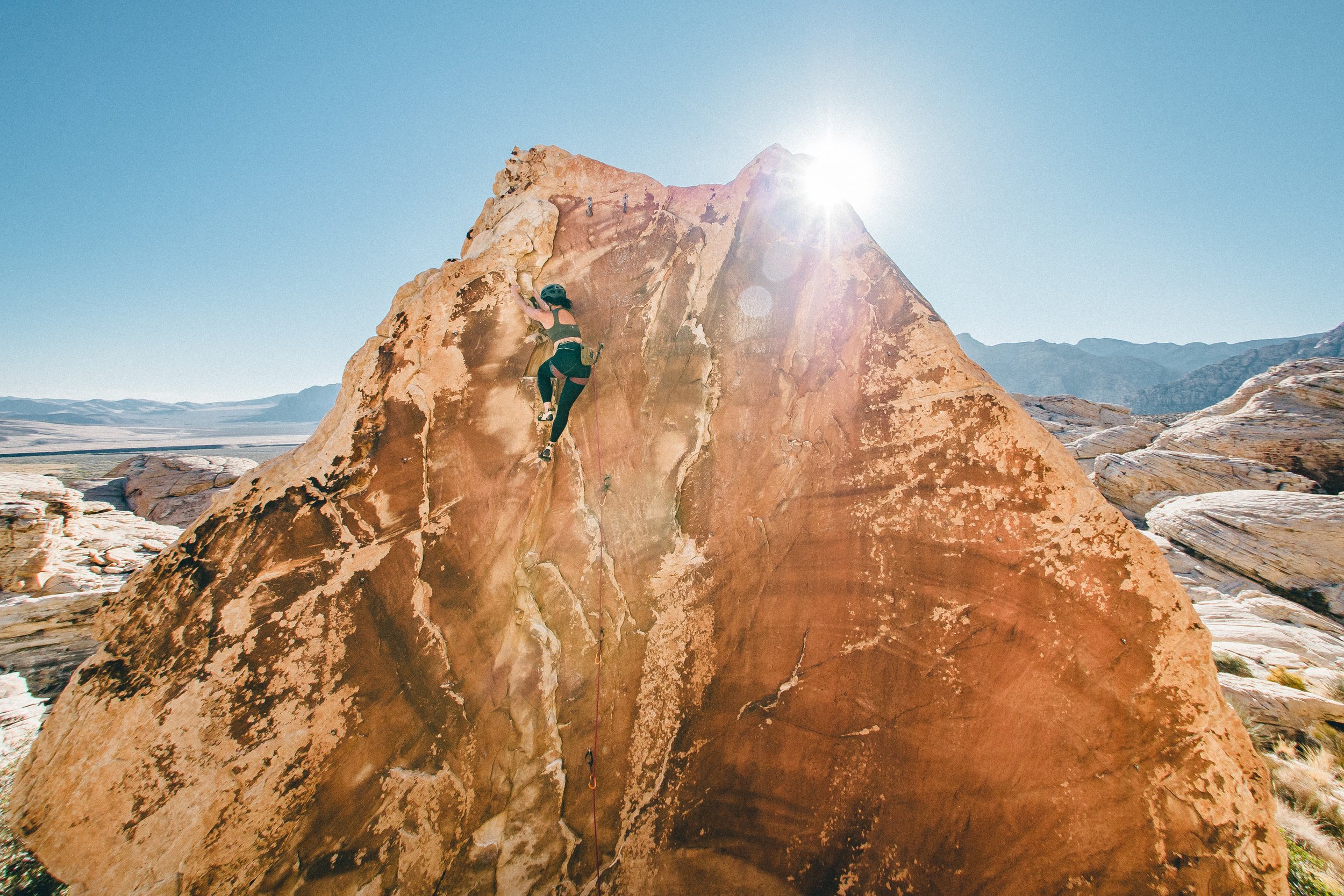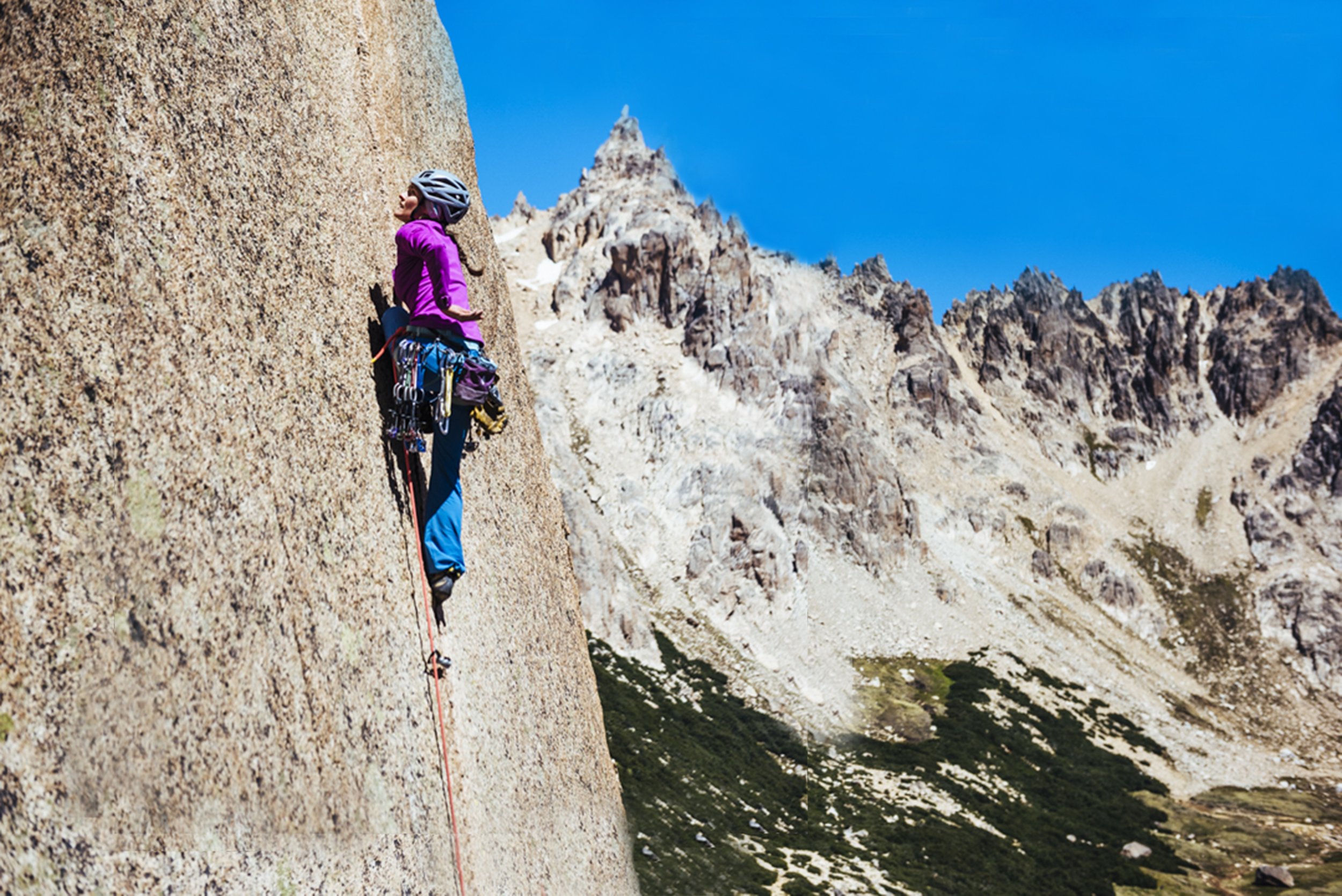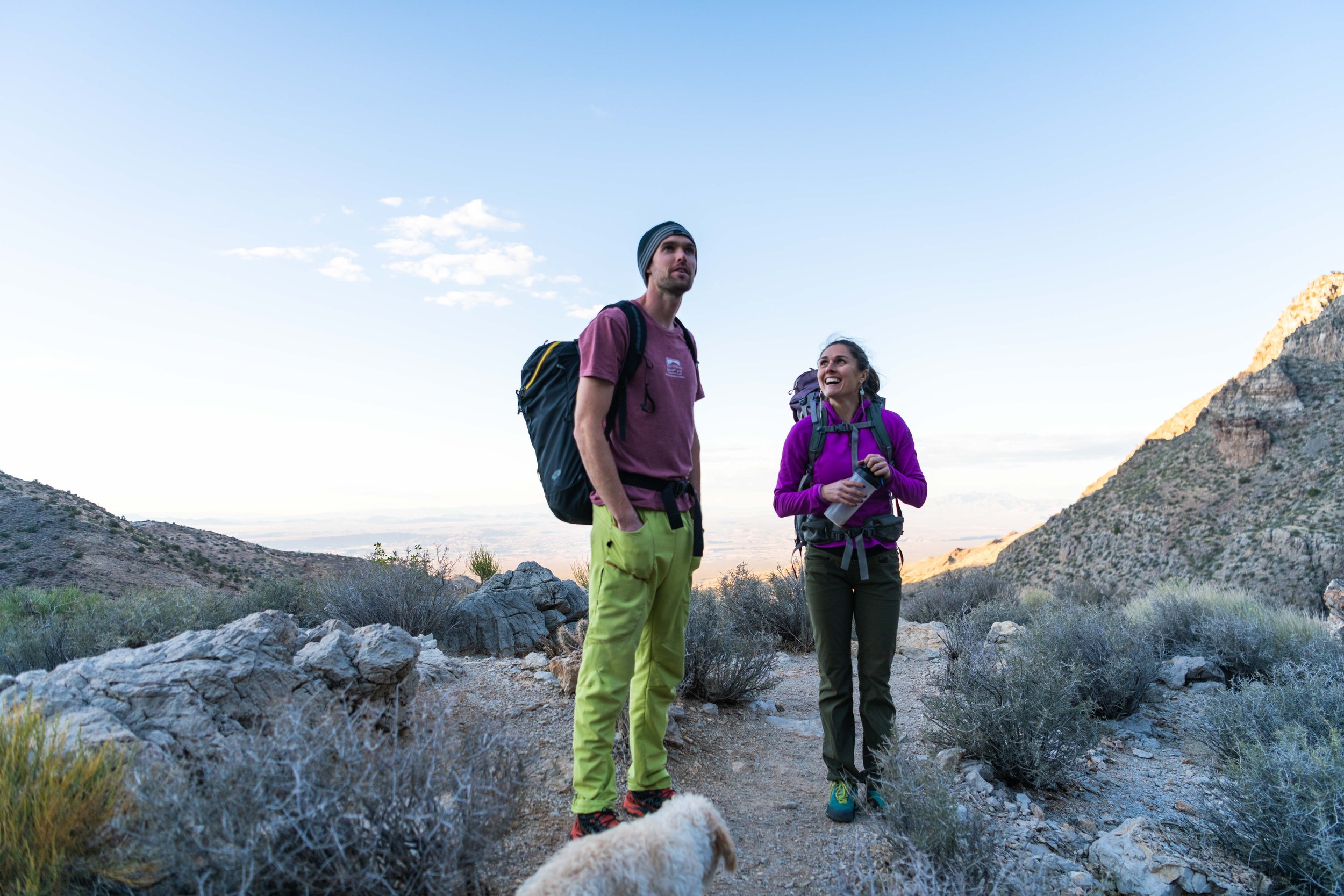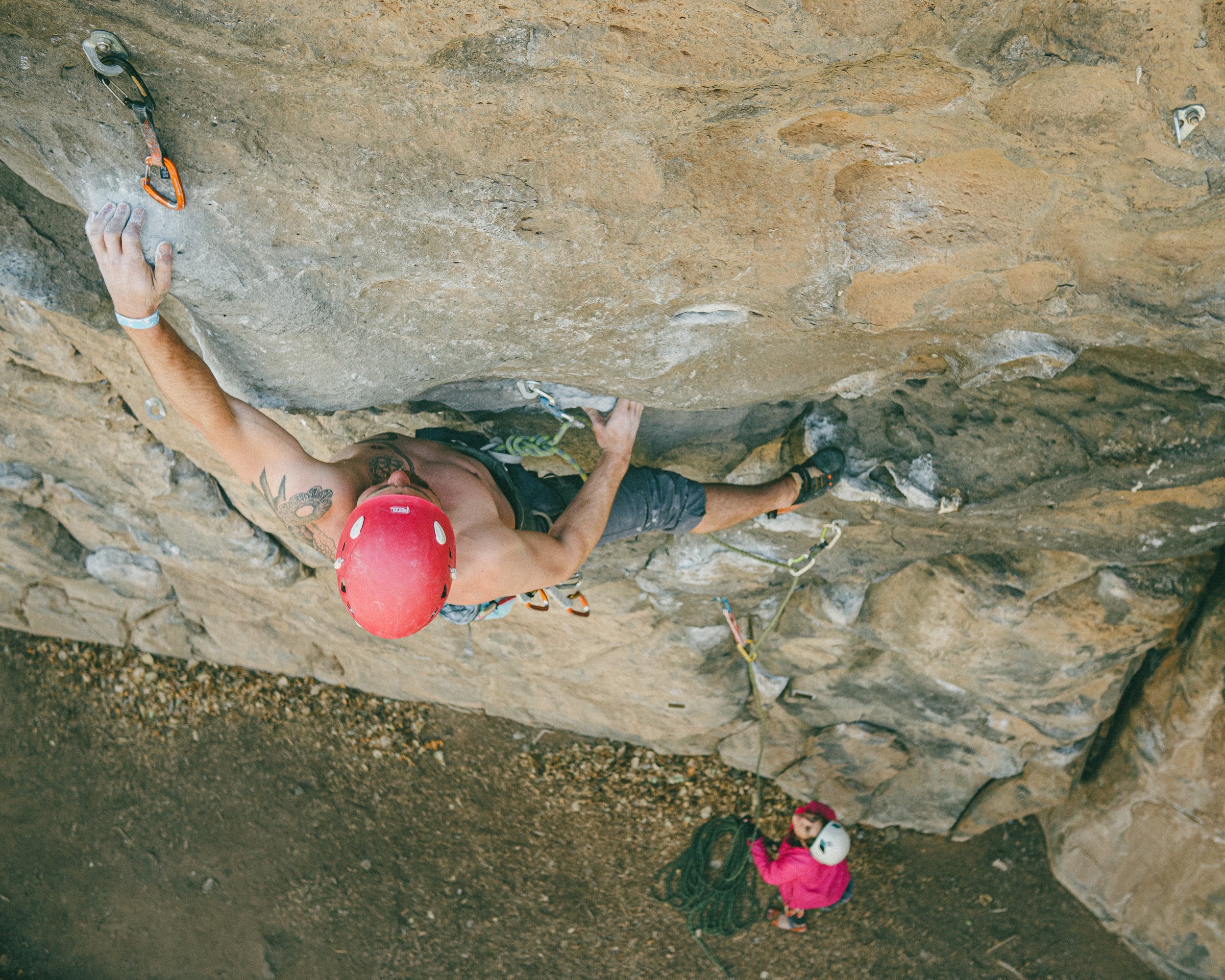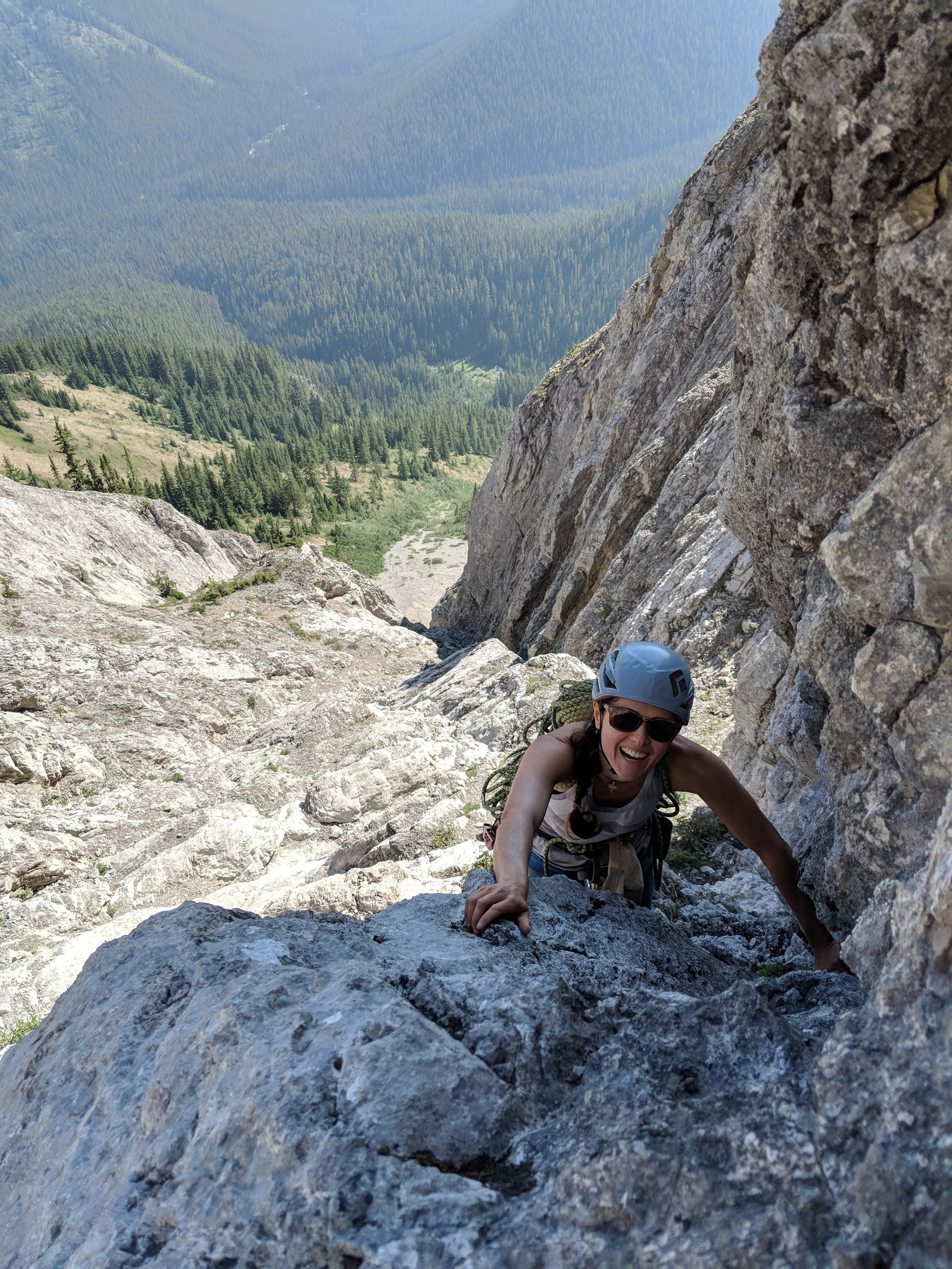
“Mastery lies not in the capturing of a summit, but in a oneness with each detail of the experience.”
— John Gill, bouldering legend
The blog
Mental training is often overlooked as the most powerful way to take our ability as climbers - and humans - to the next level. That’s why we’re on a mission to elevate ideas and resources at the intersection of climbing and personal growth. On this blog you’ll find our favorite beta about everything from brain training and life coaching to holistic wellness and yoga - all for climbers.
Have an article or resource you’d like to share with us?
How to cultivate flow states in rock climbing
You’ve likely touched this elusive and euphoric thing we call a flow state, whether on a rock climb or in the deep immersion into a thing that brings you alive. Flow states increase self-regulation, sharpen focus, improve creative problem solving, enable peak performance and elevate pleasure. Read the benefits and 7 tips to access flow states in rock climbing.
Can gratitude help you get in the zone for climbing?
You’ve probably noticed that standout climbing performances happen when you’re in the right mindset. Try this simple gratitude exercise before the next time you climb, and see if it helps you get in the zone.
Personal Growth as Perfectionism
Where are your lines between personal growth and perfectionism? Explore your relationship with yourself with us!
Climbing and personal growth: how to make the rock your mirror
We can make personal growth through climbing a conscious process by asking a simple question: “What is the rock trying to teach me?”
3 Practices to Sustain Longevity and Love in Climbing & Life
Sustainability is a word we use a lot at ClimbWell. It’s an essential quality to support and preserve the love of the things we do, the relationships we have and the experiences we cultivate on and off the rock. When it comes to balance and longevity in rock climbing, sustainability shows up in infinite ways. Here are 3 ingredients to support sustainability in your relationship to climbing and life.
Mental training for climbing: 3 beginner exercise
Our thoughts impact everything in climbing, from what goals we set and what climbs we try to our training strategies and climbing technique. Here are three beginner exercises to help you get started with mental training for climbing.
The 7 Types of Rest
Have you ever tried to fix an ongoing lack of energy by getting more sleep — only to do so and still feel exhausted?
If that’s you, here’s the secret: Sleep and rest are not the same thing, although many of us incorrectly confuse the two.
Self-talk strategies for the send
How often do you notice your inner dialogue while climbing a route? We run mental scripts that operate beneath our conscious awareness all the time. Unproductive inner dialogue is often the culprit that kills concentration. Depending on one’s habits of self-talk, these automatic narratives can make or break the send of a climb. Here are 7 strategies to transform your self-talk into strength.
How to track your climbing & training with a spreadsheet (template & explanation)
How do you log your climbing and training so it's easy to see in one place? Remy Franklin shares his rock climbing and training spreadsheet with a template you can modify to create your own.
Overwhelmed? How to know and what to do about it…
How to know when you’re in overwhelm, and what to do about it.
“It’s hard to read the label when you’re stuck inside the jar.”
There you are, body shaking, a mosh-pit of thoughts beating around the inside of your head, focused on all that is wrong, dangerous, or unplanned in the world around you. Those thoughts are so strong, in fact, that you have totally lost touch with your body besides its overwhelming sensations of tension, pain, or terror. Your eyes are moving quickly, your breath is shallow from your chest, and your mind’s-eye is playing all the potential, emanate destruction.
You are in “overwhelm.”
“Why do I suck at climbing?!” 6 tips for high gravity days at the crag
Focusing on achievement in climbing has a downside: if we’re pushing our limits, most days we won’t succeed. What does it take to embrace and celebrate the joy of accomplishing hard climbs, but not punish ourselves when we don’t? Here are six tips to help you enjoy those “high gravity” days at the crag when everything feels hard.
How to use route pyramids effectively in rock climbing
When I moved to Spain last fall, I faced an interesting new situation. I was surrounded by a lifetime of high-quality sport climbing at every grade, and I wondered: How much time should I spend onsighting vs. projecting? And when I did decide to project, what grades should I aim for? We all have our version of these questions, and I think route pyramids can help.
5 Simple Steps to Source Strength in the Face of Fear
Fear is undeniably a part of the climbing experience. Whether you are new to the sport or an experienced climber, whether you are climbing at the 5.7 grade or the 5.14 level, fear is a part of the process. There is a common myth or misconception that we need to eliminate fear. Here are 5 steps you can test out to change your relationship with fear and reclaim your own power on the wall
When and Why of Coaching, Therapy, and Training
The new calendar year can be inspiration to make changes we have noticed and possibly pushed off. Many of those changes could use an extra, expert guide, teammate, or helper. It can be confusing, however, to decide how to make the changes AND who to have on board. Here is some insight into when to work with a coach versus a trainer in your climbing and wellness goals.
A Step-by-step guide to setting New Year’s climbing goals
Happy New Year! As December winds down it’s normal to contemplate the year past and the year to come. What went well? What were the challenges? How do you want to grow in 2022? What do you want to accomplish? Read Remy’s article in TrainingBeta for a step-by-step guide to setting your New Year’s climbing goals.
The Art of Communication For Climbers: Advocating your needs & strengthening belayer partnership through Non-Violent Communication
There are fundamental practices of effective communication when it comes to rock climbing. Many of these you may already know, like establishing your commands (“climb on,” 3 tugs, etc.) or using your partner’s name at a crowded crag. But there are subtle layers to the practice of relating that can transform your climbing capacity and experience. Communication is a requisite for all relationship. Welcome to a several part series on how to hone the skill of communication. We’ll explore guiding principles nested in various frameworks, adapted not only for climbing but for greater connection and authentic relationship building in all aspects of life. Today we explore how the principles of Nonviolent Communication can support your climbing belayer relationships.
An ode to Play!
I was recently challenged to explore what Play means to me. What he had heard when I called his work “play,” was the little-p play that is about games, silliness, fun, a kind of carelessness that is important but not very substantial. What I am excited about, and the way I see his work, is Big-P Play.
Thought patterns that hold climbers back
Most rock climbers hold themselves back by not training their minds. There are many facets of mental training for climbing, from motor pattern brain training to increasing self-awareness. But the most straightforward way to start training our minds for climbing is to develop an awareness of our thought patterns.
Let’s look at five limiting thought patterns that hold most climbers back. As you read, consider: Which of these thoughts does your brain like the most? To what effect?
Visualization technique for climbing & life: why it works, the benefits and how to maximize efficacy
Visualization is a powerful practice that improves performance, motivation, and concentration. We’ve witnessed world-class rock climbers like Adam Ondra use the technique to send the sport’s first 9c/15d climb. When it comes to climbing well, visualization can be used to prepare for redpoint and on-sight ascents, train body and brain for performance and even facilitate speedy recovery of climbing injuries.
The Science and Practice of Gratitude
Gratitude is certainly no silver bullet – it is a tool like anything else. Its practice, however, is scientifically proven to have some pretty powerful impacts on both our overall wellbeing and offer momentary relief from the ails of narrowed, negative emotions.








